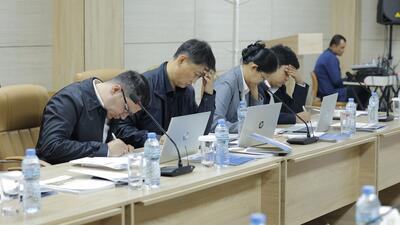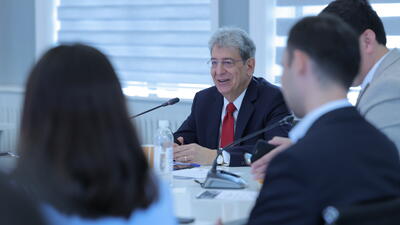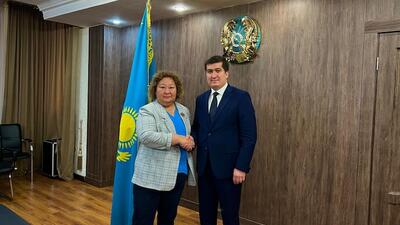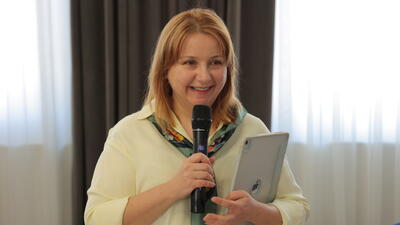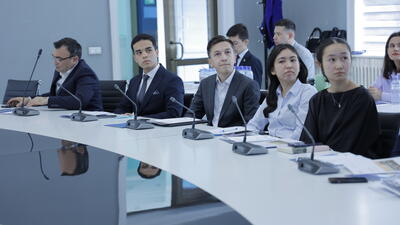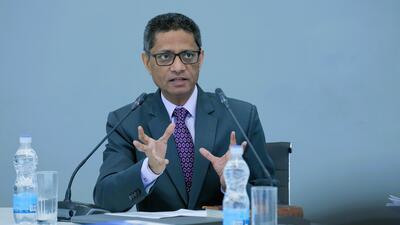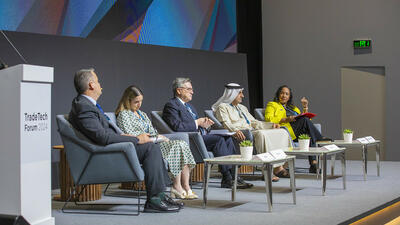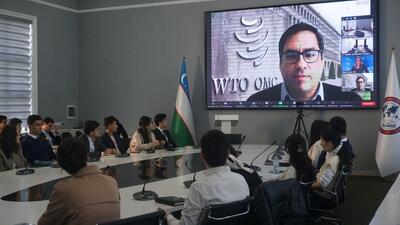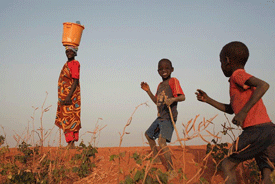
Sudán del Sur quiere que el ITC ayude a estimular el crecimiento del sector privado (en)
As part of its work to build institutional capacities for the private sector and improve trade, the Government of the Republic of South Sudan at a recent high-level meeting in Juba asked ITC to assist in its efforts to achieve these goals.
The meeting, organized by ITC in the capital Juba on 25 July, was held in a bid to look at how to best create a framework for the newly created State and how to coordinate the implementation of trade and industrial policies. Participants at the meeting included ministers and officials from the Government of South Sudan, private-sector representatives, and development and trade experts from ITC, WTO and the African Trade Policy Centre (ATPC).
While the Government is determined to build capacities for trade policy and improve the South Sudan’s private sector — it also aims for a rapid expansion of the country’s production capacities. In order to speed up these efforts the Government asked for assistance from ITC and ATPC. Specifically, ITC was asked to help set up an inter-ministerial trade-policy working group and assist in organizing national consultations. Both institutions were also asked to help facilitate the development of policy frameworks for trade, industry and agriculture to support the building of a dynamic and competitive private sector.
The government also requested that the price tag for the implementation of the trade, industry and agriculture policy frameworks be calculated.
During the event, the Government of South Sudan reiterated its intention of joining the global economy by applying for observer status in the World Trade Organization (WTO) and membership of the East African Community (EAC). While membership of the regional trading bloc would bring benefits for South Sudan, it would also mean loss of income for the Government as it currently imposes tariffs on imports from EAC countries, and South Sudan’s businesses would face increased competition.
Mr Riek Machar Teny, Vice-President of the Republic of South Sudan, reiterated the importance of integration into the regional and the global economy to enhance economic and social stability at the national level while reinforcing good governance by strengthening legal and institutional reforms. ‘This will create a more predictable and better environment for mobilizing private finance in support of a budding middle-class that generates economic growth, fulfilling the agenda set by the Government of South Sudan,’ he said.
Dr Betty Achan Ogwaro, Minister of Agriculture and Forestry, emphasized the importance of commodities and their diversification as critical elements of economic growth and poverty-reduction strategies for the Government. She presented a baseline study of agricultural potential and farm competitiveness in South Sudan that provides a basis to set production goals and possible options to boost the country’s agriculture commodities production and trade. The Government is looking at ways to boost production from the current cropland, which totals 2.7 million hectares.
Private-sector representatives highlighted the highly fragmented farming system and suggested policy interventions that would support commodity producers. They pointed out that structured trade and commodity finance will support the facilitation of cross-border trade. Mr Kornelio Koriom Mayiek, Governor of the Central Bank of South Sudan, acknowledged the unique role of the Bank to support the local private sector, but pointed out that much work remains before the bank can fully play its expected role.
Other ministers attending the event included Mr Garang Diing Akuong, Minister for Commerce, Industry and Investment, and Mr Stephen Dhieu Dau, Minister for Petroleum and Mining.






